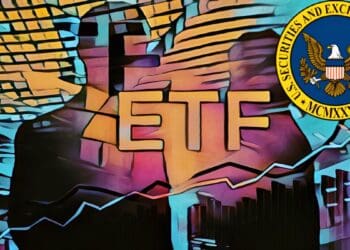Grayscale Investments has announced a significant change to its spot Ethereum ETF proposal, removing the staking component. This decision aligns with recent industry trends and follows proactive feedback from the U.S. Securities and Exchange Commission (SEC), leading to amended filings.
Grayscale Eliminates Staking from Ethereum ETF Plan
In a recently amended preliminary proxy statement for the Grayscale Ethereum Trust, the firm detailed its decision to withdraw the staking proposal from its spot Ethereum ETF plan. Originally, Grayscale had intended to offer staking for investors through the trust.
However, this option has been omitted in the latest filing, aligning Grayscale with other issuers who have also excluded staking from their spot Ethereum ETF applications. Earlier this week, Fidelity similarly removed staking rewards from its S-1 registration statement.
James Seyffart, an ETF analyst at Bloomberg, noted that this adjustment by Grayscale was anticipated. In a social media post, Seyffart remarked that Grayscale’s removal of staking language from their filing to convert $ETHE into an ETH ETF was expected.

Also Read: Ethereum ETF Decision This Week: Will ETH Prices Surge or Dip?
Background and Industry Context
Grayscale’s initial filing aimed to convert the Grayscale Ethereum Trust into a spot ether ETF, following their successful conversion of the Grayscale Bitcoin Trust to a spot Bitcoin ETF earlier this year. This transition came after a court victory and subsequent SEC approval in January, marking a significant milestone in the cryptocurrency investment landscape.
SEC Influence on Ether ETF Filings
The removal of staking from Grayscale’s proposal is part of a broader trend among potential spot Ethereum ETF issuers. Recently, the SEC requested Nasdaq and the Chicago Board Options Exchange (CBOE) to modify their spot ether ETF filings. This proactive involvement by the SEC has fueled speculation about the potential approval of these financial products.
In response to the SEC’s feedback, CBOE and five issuers, including Fidelity, VanEck, Invesco/Galaxy, Ark/21Shares, and Franklin Templeton, have published amended 19b-4 filings. These updates are crucial as the deadlines for issuers and exchanges to revise their filings approach. The first application by VanEck and CBOE faces a final deadline this Thursday. However, the spot ether ETFs can only launch once the SEC also approves the issuers’ S-1 forms.













Discussion about this post